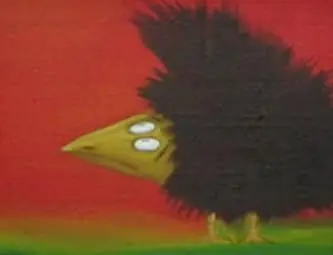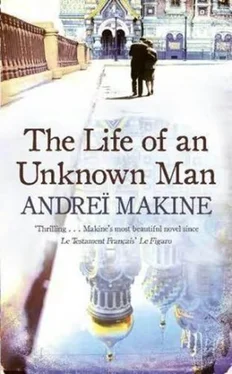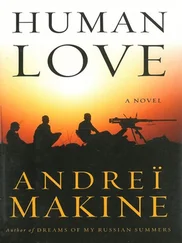Andreï Makine - The Life of an Unknown Man
Здесь есть возможность читать онлайн «Andreï Makine - The Life of an Unknown Man» весь текст электронной книги совершенно бесплатно (целиком полную версию без сокращений). В некоторых случаях можно слушать аудио, скачать через торрент в формате fb2 и присутствует краткое содержание. Жанр: Современная проза, на английском языке. Описание произведения, (предисловие) а так же отзывы посетителей доступны на портале библиотеки ЛибКат.
- Название:The Life of an Unknown Man
- Автор:
- Жанр:
- Год:неизвестен
- ISBN:нет данных
- Рейтинг книги:3 / 5. Голосов: 1
-
Избранное:Добавить в избранное
- Отзывы:
-
Ваша оценка:
- 60
- 1
- 2
- 3
- 4
- 5
The Life of an Unknown Man: краткое содержание, описание и аннотация
Предлагаем к чтению аннотацию, описание, краткое содержание или предисловие (зависит от того, что написал сам автор книги «The Life of an Unknown Man»). Если вы не нашли необходимую информацию о книге — напишите в комментариях, мы постараемся отыскать её.
The Life of an Unknown Man — читать онлайн бесплатно полную книгу (весь текст) целиком
Ниже представлен текст книги, разбитый по страницам. Система сохранения места последней прочитанной страницы, позволяет с удобством читать онлайн бесплатно книгу «The Life of an Unknown Man», без необходимости каждый раз заново искать на чём Вы остановились. Поставьте закладку, и сможете в любой момент перейти на страницу, на которой закончили чтение.
Интервал:
Закладка:
At the airport he easily exchanges his ticket. “The people who flew in for the celebrations are still here,” he is told. “The ones who chose not to come, on account of the celebrations, will be flying in tomorrow…” So he has come at the right moment, at a dead time, so to speak.
In the plane he feels for the first time in his life as if he were going from nowhere to nowhere, or rather traveling without any real destination. And yet he has never felt his attachment to a native land more intensely. Except that the country in question is not a territory but an era: Volsky’s. That monstrous Soviet era, the only period Shutov has lived through in Russia. Yes, monstrous, murderous, shamed, and one during which, every day, a man looked up at the sky.
On his return home he finds a letter from Léa, words that seem to be addressed to someone other than himself. She thanks him, tells him he can keep the two piles of books as she no longer needs them, and, for some reason, quotes Chekhov: in a short story one must cut the ending, which generally makes it too long. He realizes how much his abortive journey has changed him: he no longer comprehends these marks on paper in elegant feminine handwriting. Or rather he no longer comprehends the reasons for writing so many empty or false or hollow words. He can still manage to decode the little psychological games that lurk behind these sentences. An expression of thanks: Léa seeks to defuse the rancor of the man she has left. The books: a sentimental talisman, since she believes him to be a sentimental old man. The quotation from Chekhov: yes, let’s make a clean break and avoid any follow-up.
All this can still be deciphered. But the life these words speak of is not worth the ink they are written in. It belongs only in the novels Léa has left behind in a corner of the room, little containers for verbal matter with no substance. “Pygmyism,” he used to call it. Yes, his existence in this dovecote was a game for dolls, one of those little novels that, year in year out, recount the miniature dramas of rather cynical, rather tedious ladies and gentlemen.
He now knows that the only words worth writing down arise when language is impossible. As in the case of that man and woman separated by thousands of miles of ice, whose eyes met under lightly falling snow. As with that red-haired boy, standing there transfixed, his blind eyes turned toward the stars he has never seen.
During the first few days following his trip, Shutov discovers, moment by moment, what absolutely must be told. Volsky, of course, but also that winter’s evening in a café, the Café de la Gare, the loneliness of an old man murmuring in a void.
On arrival he had retrieved a parcel from his mailbox: a book whose title was known to him. After Her Life. He remembered that woman walking along a narrow corridor, removing her makeup with a tissue, looking as if she were wiping away tears.
After her life. “It’s what I shall live from now on,” he tells himself.
He has a surprise, too: one evening he rereads that story by Chekhov in which two chaste lovers toboggan together on a big sled, bonded by a murmured declaration of love. He discovers that his memory had greatly modified the plot. For in Chekhov the two lovers do not repeat their ride down a snow-covered slope. In later years the man encounters his former girlfriend and wonders on what whim he had long ago whispered, “I love you, Nadenka.” The story is called “A Little Joke,” a prank. In Russian, shutochka , the same derivation as the name Shutov… He pictures Chekhov, settled in a snow-covered dacha or in sunny Capri, pen in hand, with a vague, gentle smile, his eyes slightly myopic, as he observes these two characters, seated on their toboggan, coming to life on the page… The violent feeling suddenly overcomes Shutov that he will never be a part of the Russian world that is now being reborn within his native land. (“So much the better!” he says to himself.) He will remain to the end in an increasingly despised and, indeed, increasingly unknown, past. A period he knows to be indefensible, yet one in which some beings lived who must, at all costs, be rescued from oblivion.
He returns to Russia in mid-September. The home to which Volsky had been sent is located not far from Vyborg, about a hundred miles north of Saint Petersburg. Shutov had learned of the old man’s death while he was still in France, in a telephone conversation with the establishment’s head doctor.
This “home for the elderly” (as it is officially designated) is not the poorhouse he had pictured. Simply, everything there is from another era: the inmates, the staff, the building itself. “The Soviet era,” thinks Shutov, and realizes it may well be the wretched vestiges of those days that enable the old people to have the illusion of not being totally rejected. They die amid a decor they have known during their lifetimes.
What amazes him more is the graveyard. Especially the number of tombs on which the only inscription is either “u.w.” or “u.m.” “‘Unknown woman,’ ‘unknown man,’” the attendant explains. “They’re sometimes brought to the home in such a state that they’re no longer capable of speech. And there are old people who die in the street, too. Who knows where they’ve come from…”
The graveyard is small, next to an empty church. By climbing onto the front steps overgrown with wild plants, one can make out the dull gray of the Gulf of Finland… That evening Shutov spends a long while walking among the stone slabs covered with golden leaves, reading strange, ancient Christian names. Then he sits down on the steps. This fresh journey of his into Russia, he thinks, is precisely the final section Chekhov recommended cutting in a short story. Which is where the frontier lies between an elegant plunge into fine prose and the rough, patient prose of our lives.
What is most troubling is still this way of summing up a human existence: “u.w.,” “u.m.” He has made arrangements with a workman to come next day and erect a stone over Volsky’s grave bearing his complete name, the date of his birth, and that of his death. It had to be done, Shutov reflects (“the final section”…), but, nevertheless, will this inscription tell people any more than the notation “unknown man”? Perhaps even less.
He gets up, moves toward the exit, and suddenly stops. What must be written about is just this: the “unknown women” and “unknown men” who loved one another and whose words have remained unvoiced.
Walking along the road that leads toward the home he catches sight of the faintly misty line of the Gulf of Finland.
He has never seen so much of the sky in a single glance before.
Andreï Makine

ANDREÏ MAKINE was born in Siberia in 1957, and has lived in France since 1987. His fourth novel, Dreams of My Russian Summers (Le testament français), won both of France’s top literary prizes, the Prix Goncourt and Prix Médicis. His work has been translated into more than forty languages.
GEOFFREY STRACHAN was awarded the Scott Moncrieff Prize for his translation of Le testament français in 1998. He has translated all of Andreï Makine’s novels for publication in Britain and the United States.

Интервал:
Закладка:
Похожие книги на «The Life of an Unknown Man»
Представляем Вашему вниманию похожие книги на «The Life of an Unknown Man» списком для выбора. Мы отобрали схожую по названию и смыслу литературу в надежде предоставить читателям больше вариантов отыскать новые, интересные, ещё непрочитанные произведения.
Обсуждение, отзывы о книге «The Life of an Unknown Man» и просто собственные мнения читателей. Оставьте ваши комментарии, напишите, что Вы думаете о произведении, его смысле или главных героях. Укажите что конкретно понравилось, а что нет, и почему Вы так считаете.









